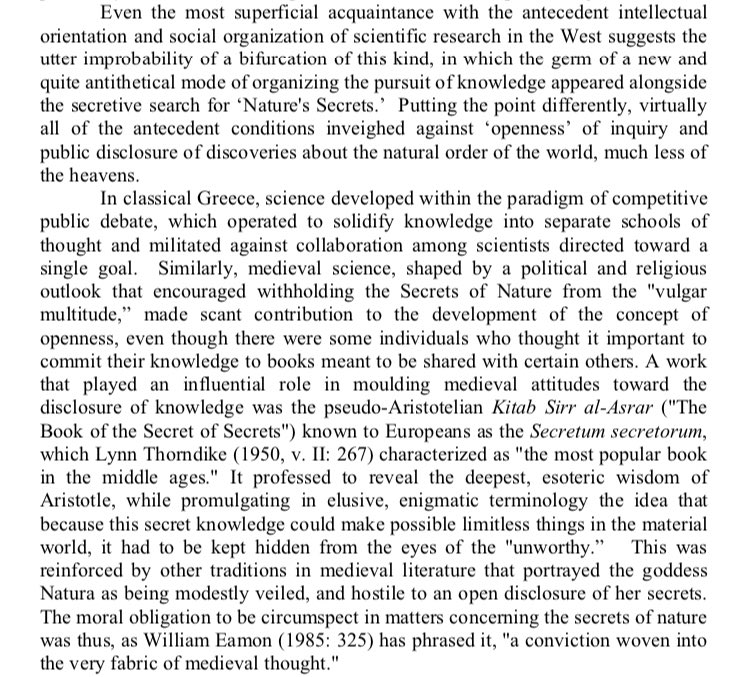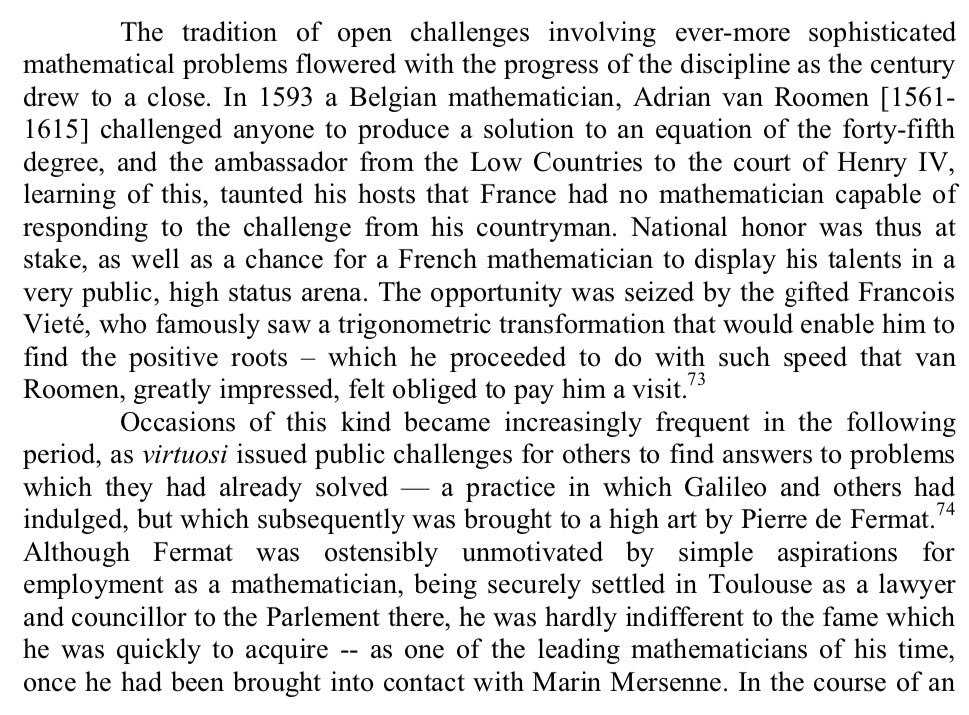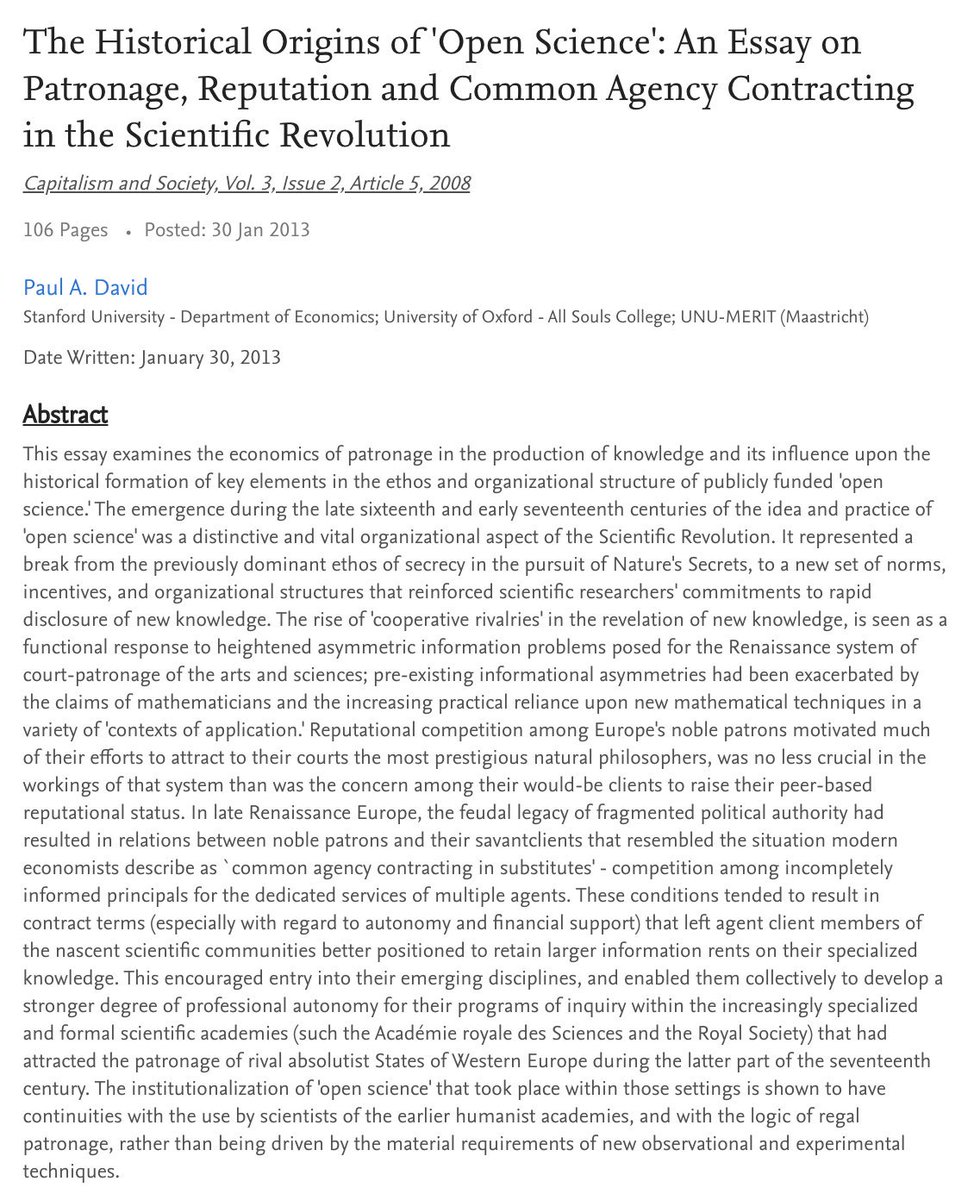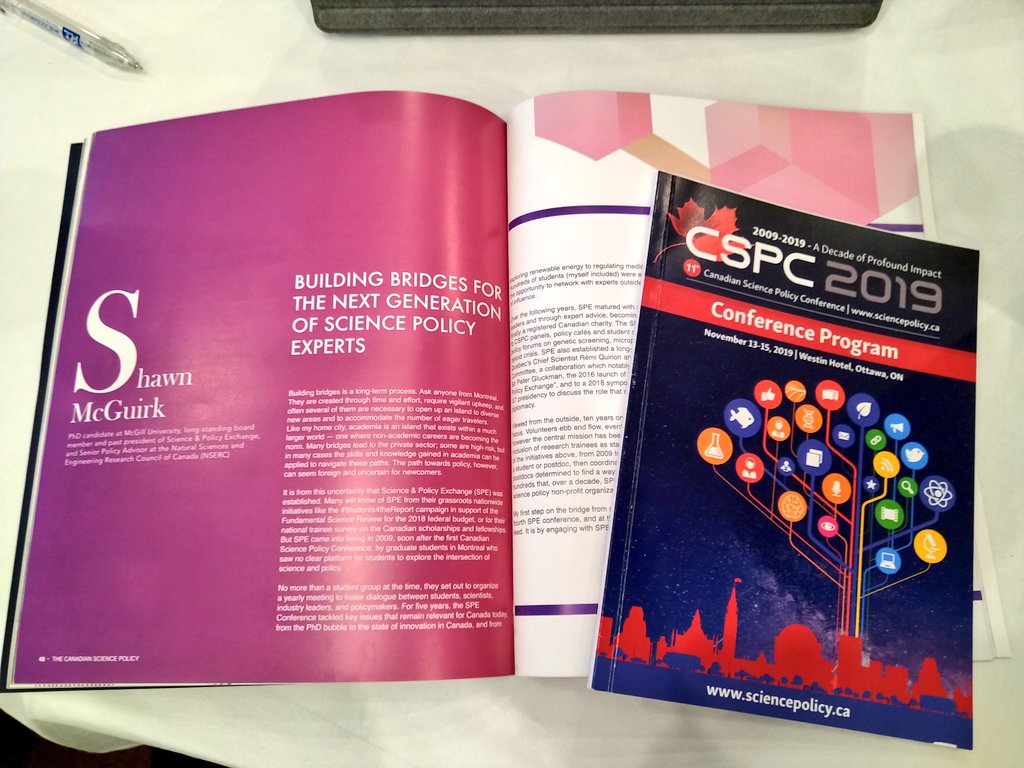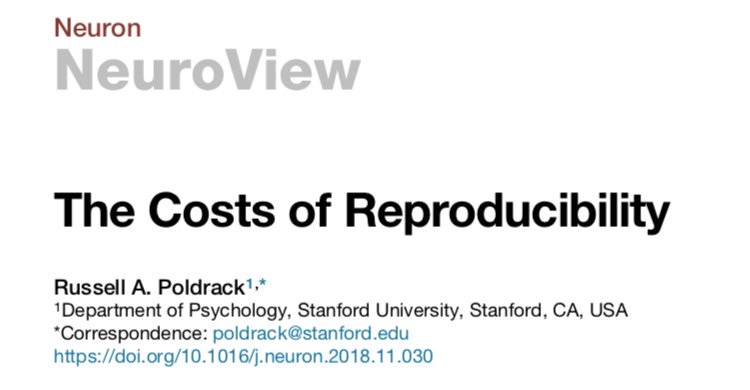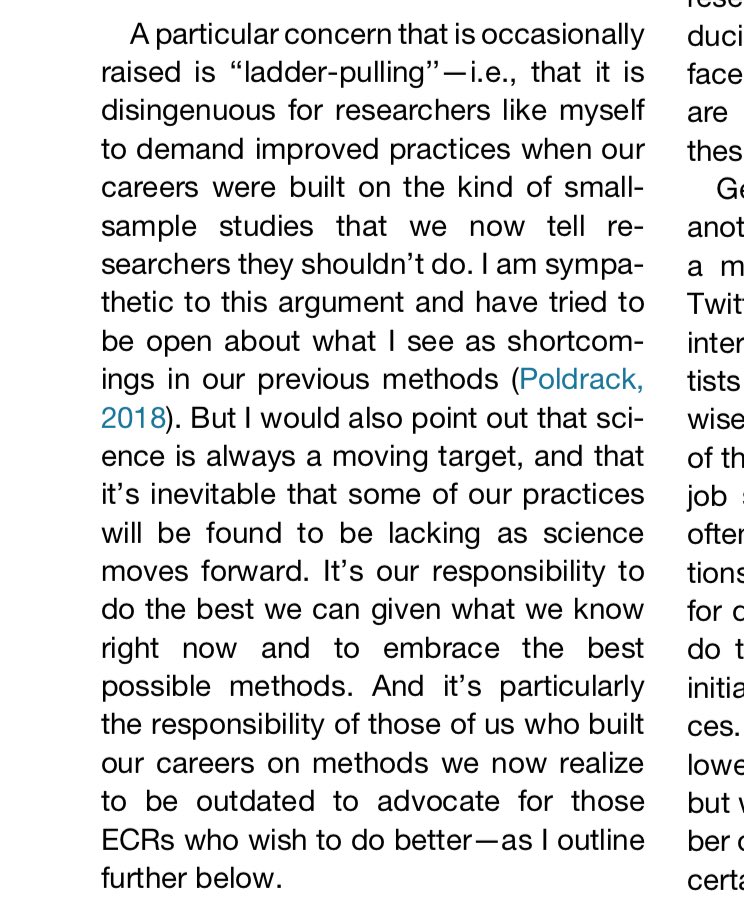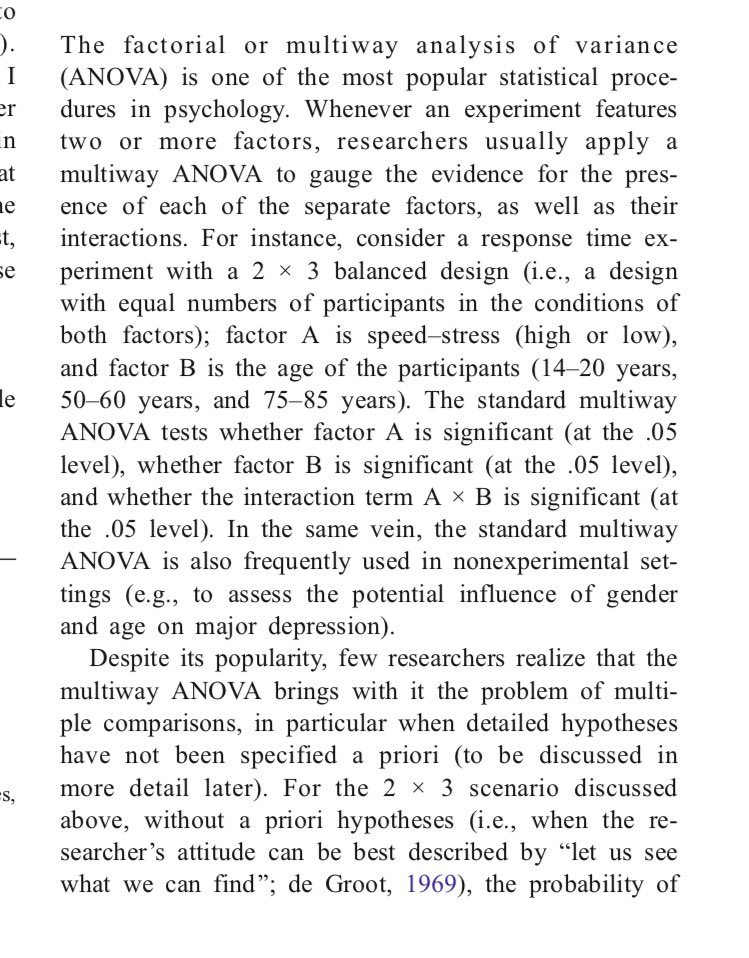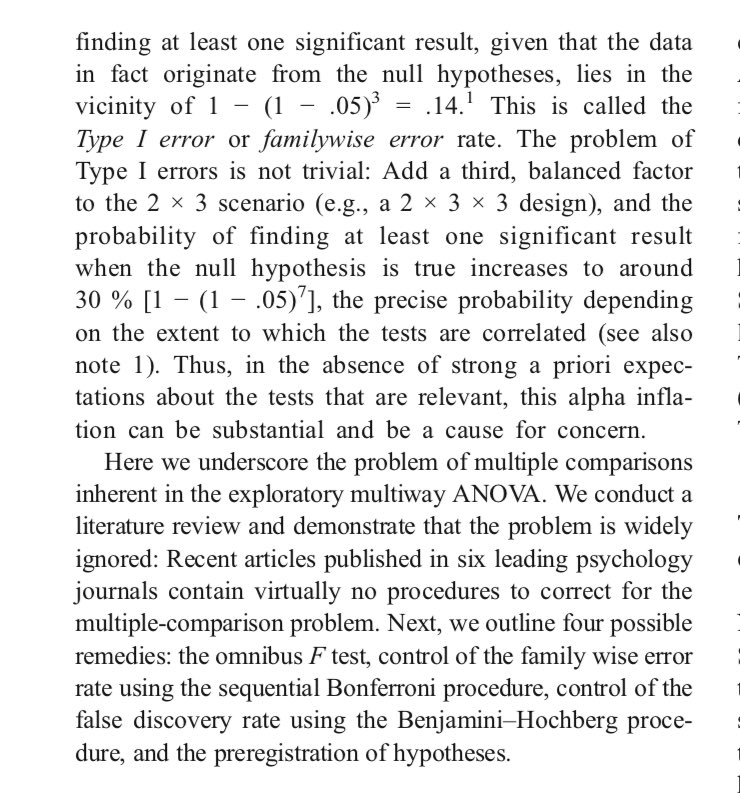I think it has a lot to teach meta-scientists. However, it’s long and abstruse. This is my attemp to make the content more accessible 🧵
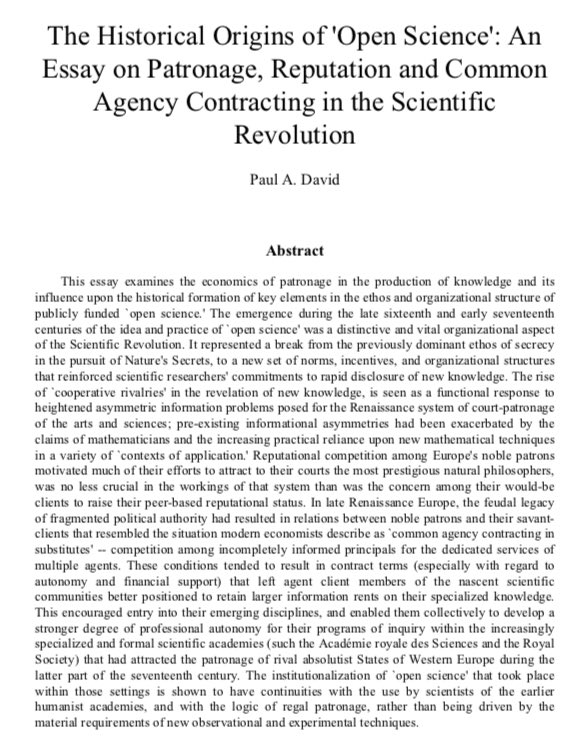
These patrons were motivated to hire scientists for pragmatic reasons — scientists could help make better maps, build better weapons to conquer stuff, and so on


